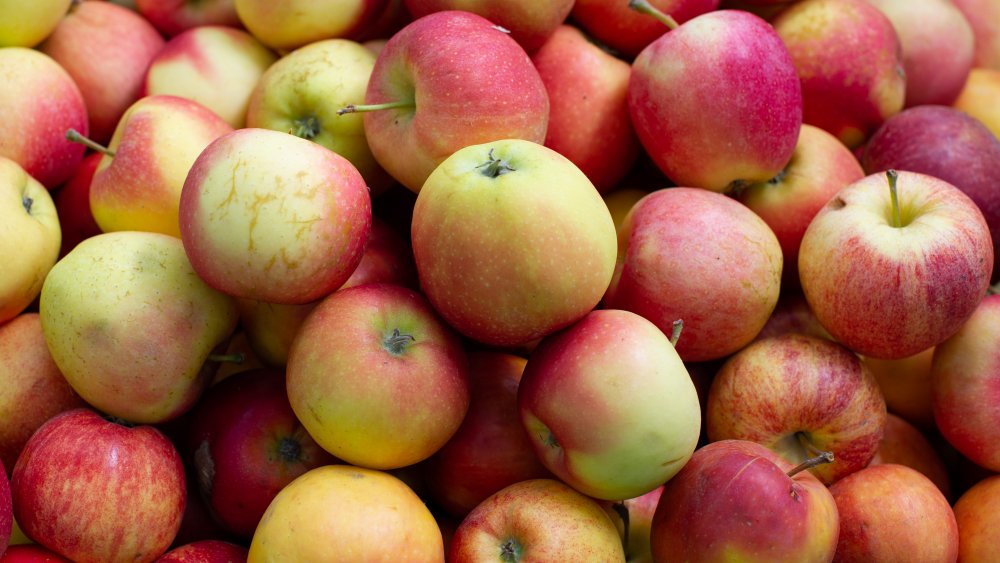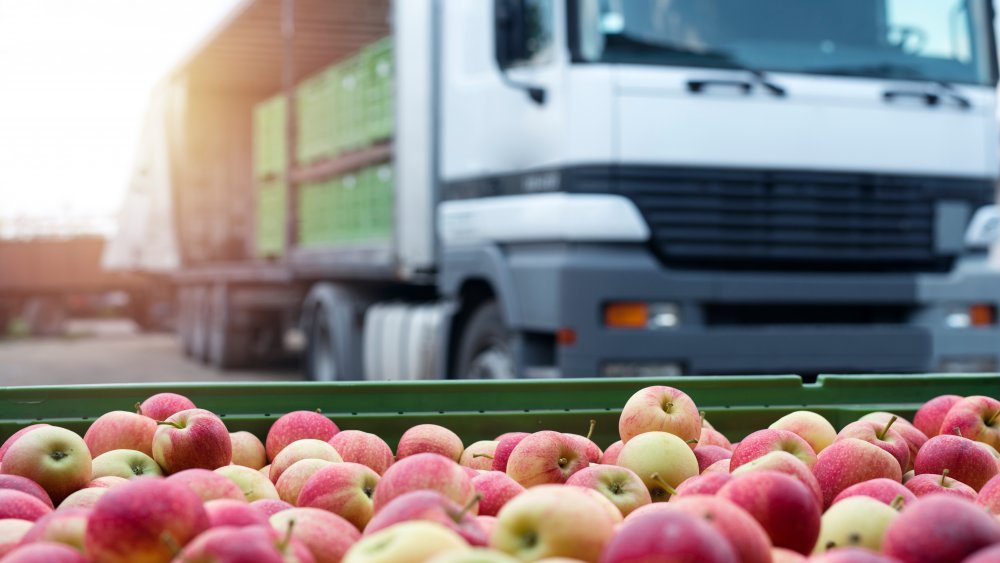The Real Reason Apples Don't Taste As Good Anymore
Apple lovers of the world, we have some bad news. Not only are you missing out on thousands of apple varieties that have now become extinct, but climate change is also affecting the universally-beloved fruit in other ways. Unfortunately, the number of dismal qualities in apples is also on the rise, but most importantly, we can consistently anticipate the decline of apples' flavor and their texture over time, as has been noticed in even newer varieties, such as the Honeycrisp (via Wired).
You may have noticed over the years that apples have lost some of their sweetness or that distinct, crisp apple flavor. On top of the taste, you might have bitten into an apple or two that was noticeably mealier. That's all thanks to climate change, and there are some apple diseases we did not even know about that are also affecting the fruit. Apart from less tasty apples and a less-than-pleasant texture, apples have become more prone to disease. One of these diseases that you've probably never heard of is called watercore, which is when the apple begins to break down from the inside out as soon as it matures (via Gizmodo).
What's behind the change in how apples taste
A team of researchers decided to test Fuji apples and compare the results to a similar study of Fuji apples from the 1970s. What they found accounts for the change in taste and texture of the apples as well as challenging diseases apple face today. One of the main findings what that malic acid, which helps give apples their distinct taste, has declined over the years. Along with the gradual depletion of malic acid, apples have noticeably lost their firmness.
The study also found that over the past 40 years, the two primary growing regions for apples in Japan experienced a temperature increase of 3.5 degrees Fahrenheit. The study, as well as other research, found that climate change has been directly responsible for the effect on the apples. What's even worse is that this isn't just bad news for apples, but for all food. If climate change affects one fruit, it will almost definitely affect many others.

